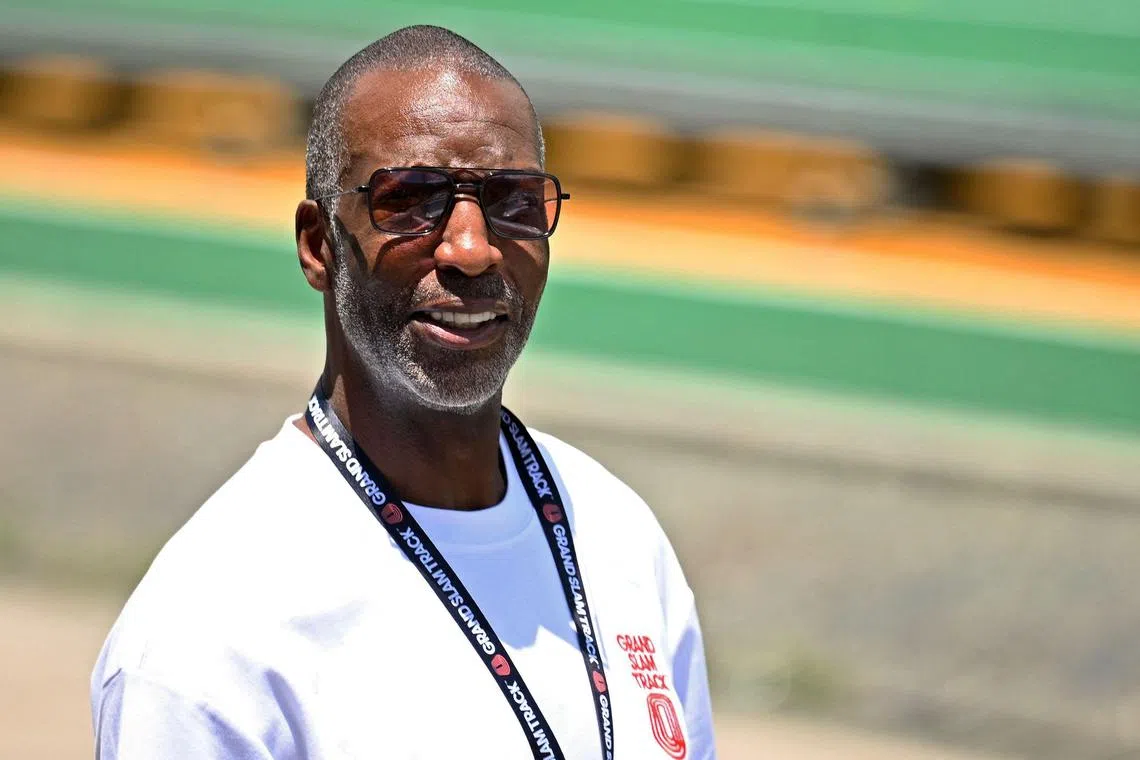Grand Slam Track won’t take place in 2026 till athletes paid for 2025
Sign up now: Get the biggest sports news in your inbox

Grand Slam Track is struggling to compensate its athletes after pulling its final meet of 2025 in Los Angeles, said its founder Michael Johnson.
PHOTO: AFP
Follow topic:
NEW YORK – The financially troubled Grand Slam Track circuit will not take place in 2026 until athletes awaiting prize money for 2025 are paid, its founder Michael Johnson said on Aug 15.
He admitted in a statement “we are struggling with our ability to compensate” athletes from the three meets that took place in 2025 in Kingston, Jamaica and in Miami and Philadelphia.
The four-time Olympic sprint gold medallist said he had taken the decision to cancel the fourth and final meeting in Los Angeles “to avoid further losses and start the lengthy process of stabilising the company to get back on track”.
“But unfortunately, we saw circumstances change in ways beyond our control,” he said.
The 57-year-old added: “The 2026 season will not happen until those obligations are met – and that is my No. 1 priority.”
Johnson said he had held talks with new investors, and he remained “confident” about the future of Grand Slam.
“We’re not done yet. Not even close,” he said.
Johnson launched Grand Slam as an alternative to the Diamond League series of international meets with an important difference – it would only feature track events and no field events. He promised a more concentrated format with more head-to-head races between the world’s best athletes.
However, while the series was able to recruit stars such as US Olympic 200m champion Gabby Thomas and 400m hurdles world record holder and double Olympic gold medallist Sydney McLaughlin-Levrone, it failed to attract a host of top sprinting talent, including the reigning men and women’s 100m champions Noah Lyles and Julien Alfred.
The series offered athletes prize money of up to US$100,000 (S$128,000) for their overall standings after participating in two races at each meet.
Athletes were pictured holding up giant cheques showing how much money they had won.
However, while the competitors expressed enthusiasm for the series, there were clear signs it had failed to capture the imagination of fans. There were swathes of empty seats at the opening meet in Kingston, while for the third meeting in Philadelphia, the programme was cut from three days to two.
In July, Front Office Sports reported that Grand Slam Track owed around US$13 million to athletes who had participated.
“It is incredibly difficult to live with the reality that you’ve built something bigger than yourself, while simultaneously feeling like you’ve let down the very people you set out to help,” Johnson said in a statement.
“We promised that athletes would be fairly and quickly compensated. Yet, here we are struggling with our ability to compensate them.”
Off the track, Ukraine’s Olympic and world champion Yaroslava Mahuchikh notched her 22nd Diamond League victory in a high jump shoot-out with Australian Nicola Olyslagers in Katowice on Aug 15.
The women’s high jump was one of three disciplines along with the women’s shot put and pole vault that were held in the main square of the south-western Polish city. The main Silesia Diamond League meet will be held in neighbouring Chorzow on Aug 16.
The high jump predictably turned into a battle between the two clear favourites.
Mahuchikh cleared 2.00 metres at her second attempt, piling pressure on her Australian rival Olyslagers, a two-time defending indoor champion and silver medallist at the last two Olympics.
But the challenge proved too much, and Olyslagers had to settle for second with 1.97m, behind the world record holder who has now claimed three circuit wins this season.
Germany’s Imke Onnen was a distant third with a best of 1.91m. AFP, REUTERS

